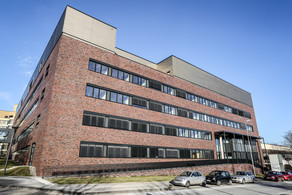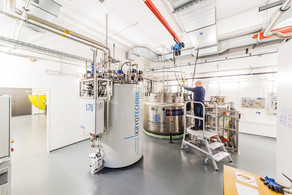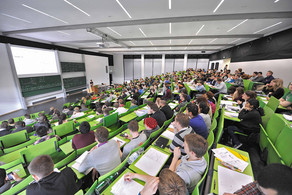Thesis defense of Felix Geyer
- Defense
With the help of radio interferometry, humanity can probe the universe at the highest resolutions possible, enabling in-depth studies of the physical processes driving the known cosmos. In recent years, the need for an increased automatization of the analysis pipelines in radio interferometry arose, mainly due to the increased data rates of the currently used and the planned generation of radio interferometers. In several areas of science, this increased automatization is handled by deep learning techniques, namely neural networks. In this thesis, I introduce a comprehensive analysis pipeline comprising physics-based radio galaxy simulations and the analytical simulation of the measurement process of radio interferometers. Furthermore, several deep learning models are trained to reconstruct the simulated incomplete observations to obtain a cleaned version of radio galaxies. Utilizing several evaluation metrics, the training process is adapted and improved with regard to the goal of reconstructing a protoplanetary disk from the Disk Substructures at High Angular Resolution Project (DSHARP) data set. Additionally, the neural network approach is extended to include the estimated uncertainty of the prediction. Finally, I present a neural network-based reconstruction of the protoplanetary disk “Elias 24”.

![Band structure of 2D semimetal based on HgTe quantum well. Experimental points are obtained from the analysis of the cyclotron resonance in the quasi-classical approximation. Solid lines are predictions of the kp theory with no free parameters. Splitting of the conduction (e1,2) and valence (h1) band is due to the quantum confinement. [J. Gospodaric, AP, et al., PRB 104, 115307].](/storages/physik/_processed_/b/5/csm_Kolloquium_Pimenov_0fa7761647.png)








